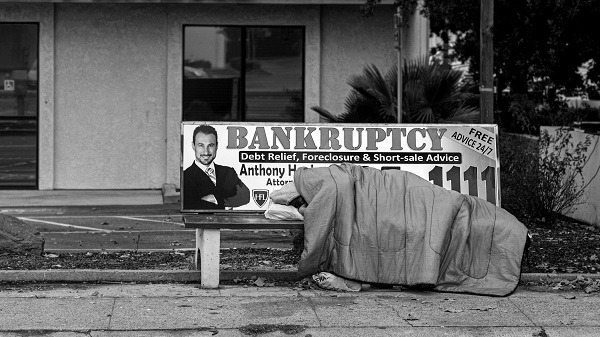Whether or not you can keep your home after bankruptcy depends on many different factors. Keeping your home after bankruptcy is often a big worry and knowing which type of bankruptcy to file can play into whether or not you can keep your home. Working with a skilled bankruptcy attorney can help you keep your home by determining the best situation for your finances.
What Factors into Keeping Your Home after Bankruptcy?
The decision to declare bankruptcy is a big one and usually comes at a time that can be overwhelming. If you are thinking about declaring bankruptcy, then you may also be worried about how you are going to manage all your finances in the future. The three big factors that determine whether or not you are able to keep your home after bankruptcy include the type of bankruptcy you file, how much equity you have already paid into the mortgage, and if you are able to afford monthly mortgage payments while facing your other debt.
The Type of Bankruptcy to File
There are two main types of bankruptcy you can file. You can either choose Chapter 13 or Chapter 7 bankruptcy. There are plenty of differences between the two, but one of the biggest differences is the exemptions which you can keep after the process. During bankruptcy, the federal government assumes that everyone needs to try and pay off their debt, and if someone does have what is considered excessive property then they should sell the property in order to pay off the debt. Bankruptcy isn’t designed to leave you impoverished and is designed to give you a fresh start so both federal and state governments have exemptions. This means that if the property you have is worth less than a certain dollar amount, you are able to keep it. In chapter 7 bankruptcy, the exemptions are stricter, lower, and don’t give you as much flexibility. In Chapter 13 bankruptcy, the exemptions are more flexible so you have a better chance of being able to keep your home if you file for Chapter 13 bankruptcy than you would if you were to file for Chapter 7.
The Equity You Have in the Home
Even if you do file for Chapter 7 bankruptcy, there can still be ways to keep the home. When deciding if you are able to keep your home under Chapter 7 bankruptcy, the trustee looks at the equity in the home. Equity is the market value of the home minus the balance on home equity loans or the mortgage. Typically, bankruptcy filers don’t have a lot of equity in the home or negative equity, so houses are exempt and don’t need to be sold in the process. If you do have equity in your home that is over the exemption limit, then you may have to sell your home or pay down the debt by paying the trustee the value of the home.
Are You Able to Afford Your Mortgage?
If you are able to keep your home throughout the process then you do get to keep it after bankruptcy, as long as you are able to and continue to pay your mortgage. After you are free from your other debt, you may find that it’s easier to afford your mortgage payments and you are able to keep your home. However, if your current income doesn’t allow you to make your current mortgage payments then the bank might eventually foreclosure on the home. When you file for bankruptcy, you need to carefully consider whether or not it will make sense to keep your home and if you want to. Bankruptcy gives you a unique opportunity to walk away from the mortgage and the home without any additional consequences. It could be easier to get your life back under control without expensive mortgage payments.
Protecting Your Home with Automatic Stay
Bankruptcy’s automatic stay will prevent creditors from continuing to harass you and pursue collection actions once you file a bankruptcy petition and this includes foreclosure procedures. However, lenders can also ask the court to remove the stay and the lender is then allowed to continue the foreclosure. If it is a foregone conclusion that you are going to lose your home, then the lender doesn’t have to wait until your case is over in order to foreclose on the home.
Chapter 7 Bankruptcy and Your Home
During Chapter 7 bankruptcy, the bankruptcy trustee sees nonexempt assets and distributes proceeds to creditors and your debt is wiped out. Bankruptcy law protects some of your property from the creditors with bankruptcy exemptions. In order to keep the home, you need to make sure that the equity in the property is entirely exempt. Chapter 7 bankruptcy doesn’t give filers a way to make up mortgage arrears. You won’t be able to keep your home despite bankruptcy unless you are able to work out something with your lender.
Chapter 13 Bankruptcy and Your Home
Chapter 13 bankruptcy makes it much easier to keep your home since you keep your property and then repay debts over time. However, keeping your home with this bankruptcy can be costly. If you are already current on payments and can cover equity with exemptions, then it’s much easier. It can get expensive because a filer needs to pay the value of your nonexempt equity to the creditors through the bankruptcy plan. You need to show that you have enough income in order to pay the debts in addition to your house payment. Chapter 13 does allow you to make up your mortgage payments through your repayment plan.

